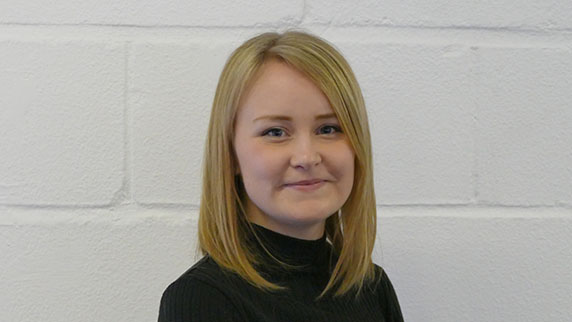
Fortnightly financial five minutes #30 Stephanie Fitzgerald
Nigel Yeates, Communications and Stakeholder Business Partner, speaks to Stephanie Fitzgerald, Head of Young People Programmes at The Money Charity about increasing financial wellbeing, and young people being most interested in financial topics that adults don’t think they will be interested in.
Please give a quick introduction to The Money Charity and your role.
We are the UK’s financial capability charity, and our vision is that everyone achieves financial wellbeing by managing their money well. We empower people across the UK to develop the skills, knowledge, attitudes, and behaviours to make the most of their money throughout their lives.
By proactively providing education, information, advice, and guidance to people of all ages and at all stages of life, we help them get to grips with their money and increase their Financial Wellbeing.
In my role as Head of Young People Programmes, I lead on our work with young people across the UK, including our Money Workshops, Student Money Manual and Teacher Resource Packs.
Our workshops for young people are the biggest part of what we do. In 2023 we will reach more than 35,000 young people via 1,500+ hours of workshops. The workshops are interactive, engaging and fun, and cover all sorts of topics, from Budgeting to Pensions, and My Money Personality to Mortgages. These workshops are free for state-funded schools and smaller charities.
In this range of financial wellbeing and financial education workshops, what are the most interesting or surprising things that have emerged?
Many young people have no idea how much things cost, or even what costs money. Some are shocked that we actually have to pay for water, how low salaries are and how much a weekly shop might cost.
Also, young people tend to be most interested in topics that adults can assume they are going to find dry, or not yet relevant. Teachers tend to favour booking workshops covering Planning and Budgeting, but young people favour learning about more technical topics such as tax and mortgages. They are full of questions about how mortgages work and what their tax is spent on. In my experience, this is because they are excited by the novelty of learning about something that adults don’t often talk to them about. They are always fascinated (and a bit horrified!) by how tax bands work, and how much take home pay you actually get.
What would be the dream scenario for you in terms of financial education in primary schools?
It would be great to see financial education on the primary curriculum. However, things would need to be done differently to when financial education was introduced to the secondary curriculum in 2014, because it has had a limited impact. Despite the fact that it was added to the secondary curriculum nearly a decade ago, only 47% of 7–17-year-olds say they have received financial education at home or at school.
To ensure that financial education is actually taught in a meaningful way in both primary and secondary schools, the following needs to happen:
- Financial education should be a statutory part of the PSHE curriculum, rather than in Maths and Citizenship;
- Financial education should be added to the primary curriculum;
- These commitments should be supported by sufficient teaching time, clear school leadership, additional resources, and teacher training;
- Budget should be available to engage external experts, such as The Money Charity, to deliver financial education as part of the school programme;
- Financial education should be Ofsted-inspected and examined, to ensure prioritisation by schools and colleges.
What would be your top tips, from what you know now, to your 16- or 18-year-old self?
Don’t assume you are going to have more spare cash the older you get. I lived my teens and twenties looking forward to a few years’ time when I will be earning more money and will be able to afford more luxuries, save more and increase my pension contributions. Unfortunately, that day has never come!
Now that I am in my 30s, I am realising that although I am earning significantly more, I have actually had less disposable income recently than I did ten years ago due to saving for a wedding, upsizing our home (and mortgage!) to make room for our expanding family, and having to pay for childcare.
So, save as much as you can now, and in your 20s, and you won’t regret it!
Now a question we ask most of our guests, on a more personal note, if £10,000 landed in your lap tomorrow, what would you do with it?
I would use half to pay for some home improvements. Me and my husband have many DIY projects that we are ‘getting around to’ but never seem to find the time with a 1- and 4-year-old who keep us very busy! It would be great to not feel guilty about paying someone to come in and finish it all off.
I would put the other half into my emergency savings pot because I know it’ll help me feel less stressed about the possibility of surprise expenses.
Thanks very much Stephanie, interesting to hear you dispel some of the assumptions that many make and we hope you get your DIY projects completed!
For more information on what FSCS protects, see our What we cover page.
The content of any discussions shouldn't be taken as an indication of future FSCS policy positions. The views expressed by guests are their own and don't reflect the views of FSCS.
We would love everyone to dedicate a regular extra five minutes to check their financial products and services are FSCS protected.